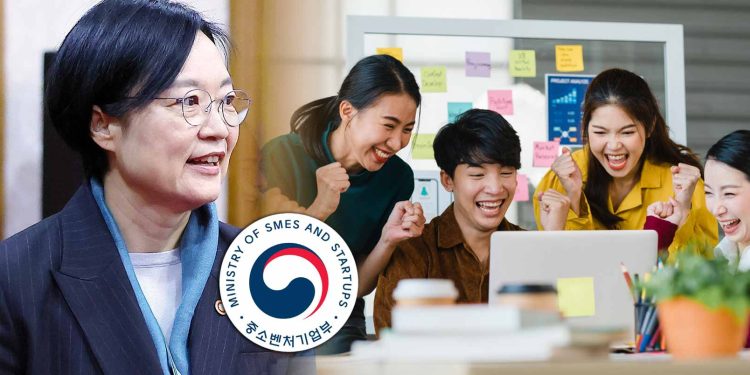Korea’s startup policy is entering a new phase where social responsibility meets innovation. By linking government support to employee protection, the Ministry of SMEs and Startups (MSS) is redefining how funding, growth, and welfare intersect. This shift signals a broader transformation in Asia’s innovation economy — one where human sustainability becomes central to competitiveness.
Government Integrates Worker Welfare into Startup Funding Criteria
The Ministry of SMEs and Startups (MSS) has announced a reform that will give preferential points to companies enrolled in retirement pension programs when applying for R&D funding and TIPS (Tech Incubator Program for Startup) support.
Starting in 2026, startups seeking government-backed innovation programs will need to demonstrate compliance with worker welfare standards, including active participation in Korea’s retirement pension system.
An official from the ministry confirmed that the reform will embed social responsibility into startup evaluation metrics, saying:
“Applicants for TIPS or R&D tasks will need to meet retirement pension requirements to qualify for government programs.
As public funding is used, ESG (Environmental, Social, and Governance) factors such as pension coverage will be given stronger weight in the scoring process.”
The measure directly follows a National Assembly audit in October, where Rep. Song Jae-bong (Democratic Party) raised the issue of unpaid retirement benefits in the startup sector, citing Seoul Economic Daily’s “Venture Ecosystem on the Edge” investigation.
MSS Minister Han Seong-sook committed to addressing the problem during the session, emphasizing that “government-supported companies must balance growth potential with ESG responsibility.”
Context: From Startup Growth to Sustainable Innovation
Since 2012, Korean law has required all business entities to establish external retirement pension reserves. However, the absence of enforcement penalties has left the rule largely symbolic.
As investment slows and startup closures rise, worker protection has emerged as a key component of Korea’s Third Venture Boom strategy — which seeks to combine technological innovation with social sustainability.
By tying public support to pension participation, the MSS aims to create a dual incentive system: rewarding responsible employers while reducing risks for startup employees affected by insolvency or restructuring.
The approach mirrors the government’s broader move toward performance-based, ESG-aligned innovation frameworks already seen in recent R&D and regional policy reforms.
Legislative Push for Founders’ Protection
Parallel to the MSS reform, the National Assembly is addressing another structural issue in the startup ecosystem — the burden of joint liability clauses that often hold founders personally responsible for company debt.
Rep. Kim Sung-won (People Power Party) recently introduced an amendment to the Specialized Credit Finance Business Act, which would ban joint liability for startup founders, accelerators, and individual investors. The proposal also strengthens oversight on predatory contract terms such as redemption rights and total-return guarantees that effectively function as capital-protection clauses.
Rep. Kim stated,
“This amendment is designed to fundamentally eliminate unreasonable liability burdens and protect startup founders and individual investors from unfair financial obligations.”
The legislative initiative complements the 2022 revision to the Venture Investment Promotion Act, which already prevents venture funds from imposing joint liability unless there is deliberate misconduct or gross negligence.
A New ESG Benchmark for Asian Innovation Policy
The integration of retirement pensions into startup funding marks a structural shift in Korea’s innovation governance. By expanding ESG principles beyond environmental and governance metrics into labor welfare, Korea is pioneering a model where employee security becomes an innovation driver — not a cost factor.
This reform also introduces a new dimension of risk assessment for global investors. Startups that comply with pension and insurance requirements are likely to be viewed as more credible investment targets, especially in international due diligence processes.
Meanwhile, for policymakers across Asia, Korea’s move offers a blueprint for linking welfare compliance to national innovation programs — a critical lesson as startup ecosystems across the region grapple with burnout, layoffs, and venture volatility.
Toward a More Responsible Venture Economy
Korea’s startup policy evolution reflects a growing belief that sustainable innovation must rest on human and financial resilience. By institutionalizing welfare standards in R&D and TIPS funding, the government is reinforcing the connection between public investment and social accountability.
As the Ministry of SMEs and Startups prepares to implement the new system in 2026, and the National Assembly advances founder-protection legislation, Korea’s venture ecosystem is entering a new stage — one defined not only by innovation capacity but also by how well it safeguards the people who build it.
🤝 Looking to connect with verified Korean companies building globally?
Explore curated company profiles and request direct introductions through beSUCCESS Connect.
– Stay Ahead in Korea’s Startup Scene –
Get real-time insights, funding updates, and policy shifts shaping Korea’s innovation ecosystem.
➡️ Follow KoreaTechDesk on LinkedIn, X (Twitter), Threads, Bluesky, Telegram, Facebook, and WhatsApp Channel.





